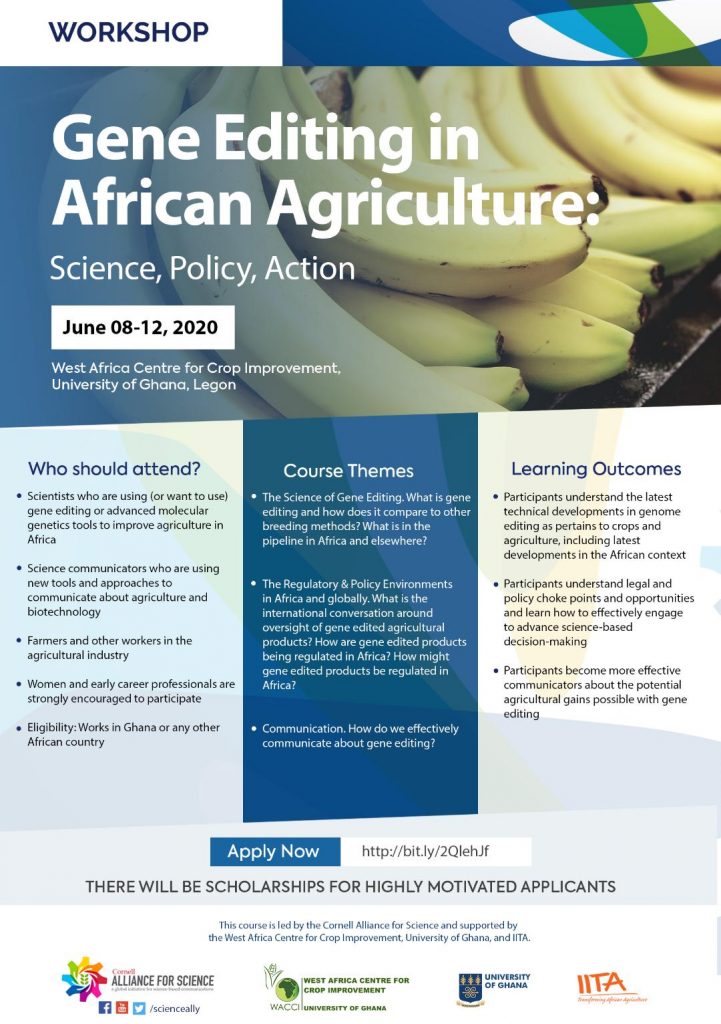February 12, 2020

“History must not repeat itself” is the mantra behind the thinking and actions of development partners and African research scientists.
There have been three revolutions in agriculture so far, and it’s a pity Africa did not benefit much from any of them. When other parts of the world mechanized their agriculture,
Africa did not. Then came the Green Revolution and Africa still was not a major beneficiary. Right now, there are innovations in agriculture such as genome editing and this time Africa should not lag behind.
The Cornell Alliance for Science in collaboration with the West African Centre for Crop Improvement based at the University of Ghana, Legon and the International Institute of Tropical Agriculture (IITA) are holding a training on genome editing from 8 to 12 June in Ghana.
According to the Director of the Cornell Alliance for Science, Sarah Evanega, the course targets “scientists who are using or want to use gene editing to improve agriculture in Africa.” Science communicators, farmers, and other workers in the agricultural industry are also encouraged to apply.
Genome editing is a new tool, which can be used to improve crop yield and/or resistance to pests and diseases. IITA is at the forefront of genome editing research in Africa under the leadership of principal scientist,
Leena Tripathi. Unlike biotechnology, which has faced a lot of resistance especially in the policy arena, Tripathi is hopeful that genome-edited products will not be regulated which will enable them to reach farmers and eventually consumers. “Most counties are not regulating genome-edited products so we hope that they will not be regulated in Africa as well,”
Tripathi, who is the Deputy Director of IITA’s Eastern African hub says in a video interview. Genome editing, just like other innovations and practices seeks to contribute to feeding and nourishing a growing population.
According to projections from the UN Population Division report, the population of sub-Saharan Africa is projected to double by 2050. These people need to feed and tools such as genome editing can make a contribution. Interested in participating, apply now.